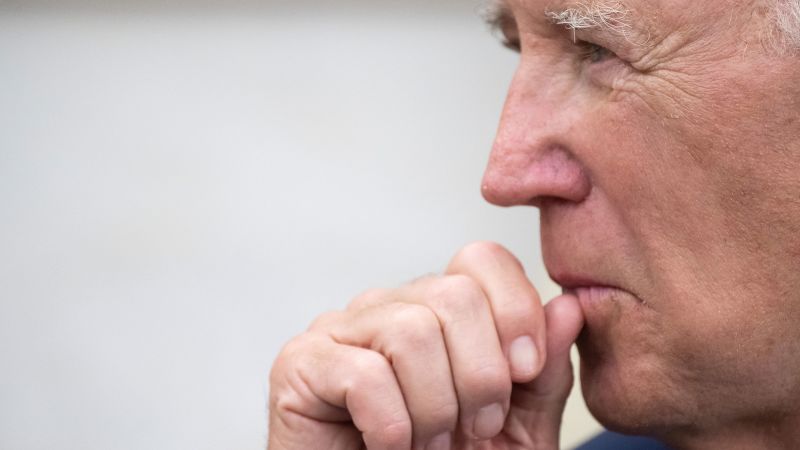Politics
Republicans Challenge Biden’s Pardons, Raising Constitutional Questions

A growing faction within the Republican Party is pushing to invalidate several pardons issued by President Joe Biden. This movement, marked by significant political implications, raises questions about the constitutional authority surrounding presidential pardons, a power historically regarded as one of the few unchecked privileges of the executive.
The U.S. Constitution grants the president the ability to issue pardons with a succinct phrase: “He shall have Power to grant Reprieves and Pardons for Offences against the United States, except in Cases of Impeachment.” The constitutional text does not stipulate the need for a physical signature by the president or a competency assessment for the officeholder. Instead, the legitimacy of such decisions is ultimately determined through the electoral process every four years, with the 25th Amendment providing a mechanism for removal only in cases of incapacity.
Historical precedents for overturning pardons are sparse. The most notable instance occurred in post-Revolution Virginia when the House of Delegates revoked pardons for three men convicted of treason due to a lack of agreement from the Virginia Senate. This event predates the establishment of the current U.S. Constitution and is not directly applicable to the modern context of presidential pardons.
In recent months, the call to challenge Biden’s pardons has intensified. In March, former President Donald Trump proclaimed that Biden’s pardons, executed with an autopen, were “VOID, VACANT, AND OF NO FURTHER FORCE OR EFFECT.” Following this declaration, Republicans on the House Oversight Committee initiated investigations into Biden’s use of the autopen, a device employed by several presidents, including Trump himself.
Biden’s pardons include notable figures such as his son, Hunter Biden, who faced legal issues related to tax and gun charges, as well as individuals who have been critical of Trump, including Senator Adam Schiff and former House Speaker Nancy Pelosi. Trump’s intention to pursue retribution against political adversaries in a potential second term has further fueled the significance of these preemptive pardons.
In a July interview with the New York Times, Biden asserted that he personally authorized all pardons, utilizing the autopen due to the volume of signatures required. Nonetheless, speculation surrounding his cognitive capabilities has persisted. A report released on July 4, 2023, titled “The Biden Autopen Presidency: Decline, Delusion and Deception in the White House,” alleges a cover-up regarding Biden’s mental acuity and argues that without explicit documentation proving his authorization, the pardons should be rendered invalid.
Adding to the scrutiny, Pam Bondi, a former Attorney General, stated on social media that the Department of Justice is investigating the matter. Furthermore, Trump’s former pardon attorney, Ed Martin, indicated that he would not recognize specific pardons granted by Biden.
To explore the viability of voiding a presidential pardon, insights from legal experts are critical. According to Bernadette Meyler, a professor at Stanford Law School, there is currently no federal precedent that would support such an action. She noted that while state-level cases have addressed the invalidation of pardons due to bribery or fraud, these scenarios do not align with the current situation.
Meyler emphasized that there is no constitutional requirement for a president to demonstrate competence in executing any decision, including issuing pardons. The Constitution does outline procedures for presidential replacement in cases of incapacitation, but without such a determination, there are no established protocols for invalidating a president’s actions based on competency.
In considering potential legal mechanisms to challenge a pardon, Meyler suggested that the Attorney General could seek a declaratory judgment to declare a pardon invalid due to improprieties. Nonetheless, the factual basis for such a claim would need to be compelling. Given Biden’s assertion that he authorized all pardons, it is difficult to envision a legal challenge succeeding based on current facts.
The debate surrounding the use of autopen signatures raises additional questions regarding the legitimacy of presidential actions. While the Constitution stipulates that pardons must be the act of the president, it allows for delegation of tasks. This nuance complicates the assertion that autopen-signed pardons are inherently invalid.
The historical context of the pardon power reveals a complex evolution. Notably, figures like Thomas Jefferson have criticized the power, arguing it poses risks to democratic principles. This reflection prompts a reconsideration of the pardon power’s role in the modern political landscape.
Meyler advocates for a reassessment of the presidential pardon authority, noting that it has increasingly mirrored a unilateral executive privilege rather than a democratic safeguard. The historical interpretations of the Supreme Court have generally expanded presidential powers, particularly during the late 19th century concerning President Andrew Johnson‘s pardoning of former Confederacy members.
In conclusion, while the movement to void Biden’s pardons has gained traction among some Republicans, the constitutional and historical barriers to such actions remain significant. As the political landscape evolves, the implications of this challenge could resonate well beyond the current administration, potentially setting precedents for future presidential actions.
-

 Sports2 weeks ago
Sports2 weeks agoSteve Kerr Supports Jonathan Kuminga After Ejection in Preseason Game
-

 Politics2 weeks ago
Politics2 weeks agoDallin H. Oaks Assumes Leadership of Latter-day Saints Church
-

 Business2 weeks ago
Business2 weeks agoTyler Technologies Set to Reveal Q3 2025 Earnings on October 22
-

 Entertainment2 weeks ago
Entertainment2 weeks agoZoe Saldana Advocates for James Cameron’s Avatar Documentary
-

 Science2 weeks ago
Science2 weeks agoChicago’s Viral ‘Rat Hole’ Likely Created by Squirrel, Study Reveals
-

 Lifestyle2 weeks ago
Lifestyle2 weeks agoKelsea Ballerini Launches ‘Burn the Baggage’ Candle with Ranger Station
-

 Lifestyle2 weeks ago
Lifestyle2 weeks agoDua Lipa Celebrates Passing GCSE Spanish During World Tour
-

 Health2 weeks ago
Health2 weeks agoCommunity Unites for Seventh Annual Mental Health Awareness Walk
-

 World2 weeks ago
World2 weeks agoD’Angelo, Iconic R&B Singer, Dies at 51 After Cancer Battle
-

 Business2 weeks ago
Business2 weeks agoMLB Qualifying Offer Jumps to $22.02 Million for 2024
-

 Sports2 weeks ago
Sports2 weeks agoPatriots Dominate Picks as Raiders Fall in Season Opener
-

 Health2 weeks ago
Health2 weeks agoRichard Feldman Urges Ban on Menthol in Cigarettes and Vapes








